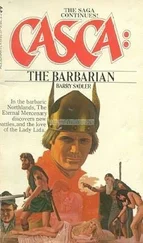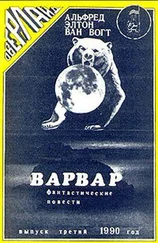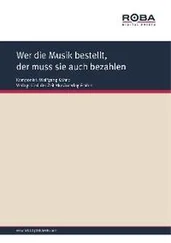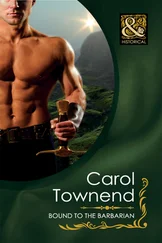
Never, never, will the Hindu realize to what a degree he exasperates the European. The spectacle of a Hindu crowd, of a Hindu village, or even crossing a street where the Hindus are in their doorways, is irritating and odious.
They are all constipated.
You cannot get used to it.
You always hope that by the next day they will have recovered.
This constipation is the most irritating of all, constipation of the breathing and of the soul.
They look at you with self-control, a mysterious locking-up, and though it is not clear, give the impression of interfering somewhere inside one, as it would be impossible for oneself to do.

The Hindu does not succumb to the charm of animals. Ah! No indeed. He rather looks askance at them.
He dislikes dogs. No concentration, dogs. Creatures of impulse, shamefully lacking in self-control.
And in the first place, what are all these reincarnations doing here? If they had not sinned they would not be dogs. Perhaps they were loathsome criminals, perhaps they killed a Brahmin (in India one must avoid being either a dog or a widow).
The Hindu appreciates wisdom and meditation. He is in harmony with the cow and the elephant, who keep things to themselves and live in retirement as it were. The Hindu likes animals that do not say ‘thank you’ and that do not turn too many somersaults.
In the country there are peacocks, no sparrows, but peacocks, ibises, herons, an enormous number of crows and some kites.
All that is serious.
Some camels and some water buffalos.
Needless to say, the water buffalo is slow. The water buffalo wants to lie in the mud. Outside of that, he is not interested. And when harnessed, even in Calcutta, he will not go fast, oh! no, and from time to time, passing his soot-coloured tongue between his teeth, he will gaze at the city like one who feels he has gone astray.
As for the camel, he is quite the superior of the horse, orientally speaking; a trotting or a galloping horse always looks as if he were going in for a sport, he does not run, he struggles. The camel, on the contrary, carries himself rapidly forward with a harmonious gait.
Now that we are on the subject of cows and elephants, there is something I want to say. Lawyers are not to my taste. Cows and elephants, beasts who lack the vital impulse, and lawyers.
And regarding impulse, I want to say something. The first time I went to the Hindustani theater, I nearly cried with rage and disappointment. I was right out in ‘the provinces.’
An avalanche of despicable and ridiculous words.
Hindustani is a language containing eight or nine languages. But all the words have the same look:
Gaping in a broad, good-natured peasant fashion, slow, with an enormous number of very thick vowels, â’s and ô’s with a sort of buzzing, heavy vibration, or a dragging, disgusted contemplativeness, î’s and particularly ê’s, a fool’s letter, a real cow’s bê. All this, enveloped, sickening, comfortable, eunuch-like, satisfied, devoid of a sense of the ridiculous.
Bengali is more singing, a slope, the tone one of gentle remonstrance, of good humour and suavity, the vowels succulent and a sort of incense.

The white man possesses a quality that has enabled him to make his way: disrespect .
Disrespect being empty-handed must fabricate.
The Hindu is religious , he feels that he is connected with everything.
The American has hardly anything. And even that is too much. The white man does not allow himself to be hypnotized by anything. If you are absorbed by studies, games, sports or family you are not modern.
In former times the learned men of India and everywhere were lost in wonder at the phenomena that were to be observed, by chance, right in front of their eyes. They looked no further but brought to these their labor of comparison and of syllogism. Anyhow, it helped to pass the time. Three thousand years, for example.
Arabs, Hindus, even the lowest of the Pariahs seem to be possessed with the idea of the nobility of man. Their gait, their robe, their turban, their way of dressing. And the Europeans here all look like plain workmen or errand-boys.

All Hindu thought is magic.
A thought must be active, act directly on the inner being, on the outer being.
The formulae of Western science do not act directly. No formula acts directly on the wheelbarrow, not even the formula of levers. One is obliged to put one’s hands to it.
Western philosophies make one’s hair fall out and shorten one’s life.
Oriental philosophy makes hair grow and prolongs life.
A great deal of what passes for fine philosophic-religious thought is nothing at all but Mantras or magic prayers, with a property much the same as ‘Open, Sesame!’
If these words (to quote from the Kandogya-Upanishad concerning a text which, in spite of all the commentaries, does not appear to be so extraordinary) were said to an old stick, it would be covered with flowers and leaves and would take root again .
One must not forget that all the hymns and often mere philosophical commentaries are efficacious . They are not thoughts to think, they are thoughts for the participation in Being, in BRAHMA.
And the Hindu, ever scrupulous, displays a special concern with the matter.
To be detached from the Absolute, that hell to which you Europeans are going, that hell haunts them.
Beware of this frightful place!
‘For those who leave this world without having discovered the Atman and his true life, there will be no liberty in ANY WORLD’ (VIII, Prapâthaka Khonda 2 Kh. Upanishad) .
One cannot think of that without feeling frozen.
Most of the Hindus I have known, employed by English firms, possessed one or two good ‘formulae.’
And the Indian armies always used as a weapon of combat the magic formulae of the Mantras .

Controlled breathing for magic purposes may be considered the national Hindu exercise.
One day, at the station in Seranpore, I asked a babu who was accompanying me to explain one of the details of this subject.
In less than three minutes, about twenty experimentalists, advisers, propagators were around us, attracted by this miraculous science, and with the aid of the nose (four inhalations with the left nostril, hold it, then sixteen rapid exhalations with the right, etc., etc…), were spreading before us the crumbs of their extraordinary science of respiration.
Never did I see so many gestures (the Hindu lives without gestures).
More than one clerk in the Imperial Bank, when his work is done, occupies himself with Mantras; he has his guru and dreams of retiring to the bastions of the Himalayas for meditation.

In the deep sense of the word, the Hindu is practical. From the realm of the spirit he expects returns. Beauty he does not value. Beauty is an intermediary. Truth, as such, he does not value — only the Efficacious. That is why his promoters are successful in America, and make proselytes in Boston and in Chicago, where he is side-by-side with… Pelman.

Читать дальше













